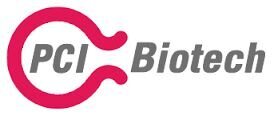VACCINATION
CANCER IMMUNOTHERAPY
Immunotherapy is a promising emerging cancer treatment, with important products already on the market and an extensive development pipeline.
As compared to more conventional cancer therapeutic modalities immunotherapy has several important advantages:
it can attack cancer systemically, virtually seeking up cancer cells anywhere in the body
it is often specific for the cancer cells, thereby potentially less harmful to normal cells than conventional cancer therapies, and hence giving less severe side effects
the action can be durable, possibly offering life-long cure and protection for patients responding to the treatment
it can in principle be used on all types of cancer
fimaVACC – AN INNOVATIVE PROPRIETARY IMMUNOTHERAPY TECHNOLOGY BASED ON PCI
The fimaVacc programme aims to enhance immunotherapy in cancer. To achieve this, the fimaVacc technology applies a unique mode of action, triggered endosomal release of antigens or nucleic acids encoding antigens or immunostimulatory factors. In preclinical experiments fimaVacc has proven excellent efficacy with protein- and peptide-based vaccines. Thus, the technology has shown particularly strong cytotoxic (CD8) T-cell immune responses, which are crucial in cancer immunotherapy, as well as enhanced helper (CD4) T-cell and antibody responses. The fimaVacc technology has the potential to effectively enhance antigen presentation and immune activation, by acting on both peptide- and nucleic acid-based vaccines and other immunotherapies
MECHANISM OF ACTION:
• Induction of CD8 T-cells is essential for the generation of an immunological response that can attack the tumour cells. Induction of CD8 T-cells is typically mediated through MHC Class I antigen presentation by antigen presenting cells (APCs).
• fimaVacc can re-localise endocytosed antigens and nucleic acids encoding immunological agents from endosomes to the cytosol in APCs, thereby both promoting presentation through the important MHC Class I pathway and stimulating general immunotherapeutic responses.
CLINICAL PROOF OF CONCEPT FOR fimaVACC:
Successful clinical translation of fimaVacc in combination with peptide and protein antigens by a phase I study in healthy volunteers was reported early May 2019.
The results show that tolerable treatments with the fimaVacc technology in combination with a state-of-the-art adjuvant (Hiltonol) provides substantial increase in the number of T-cell responders already after two vaccinations and a clear enhancement in the magnitude of T-cell responses compared to the control group with the adjuvant Hiltonol. The important CD8 responses are more robust and exhibit increased functionality. The results are with HPV E7, an antigen known to be notoriously difficult to induce CD8 T-cell responses for in man. The results of this study have been published.


